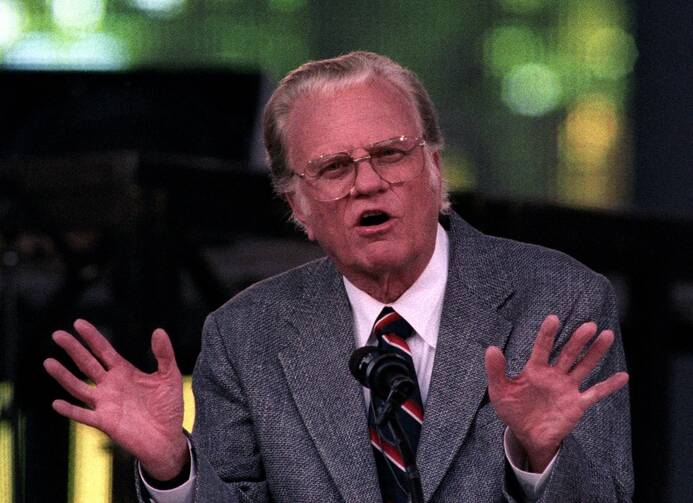"You can imagine how out of place I feel. I feel like a fish out of water."
That was how the Rev. Billy Graham began his TED talk in 1998. TED? Billy Graham? 1998? Yes. Before TED became as well known as the local newspaper, the Rev. Graham, then almost 80 years old, addressed a TED conference to speak about technology and religion.
Drawing on the Old Testament, King David, and the Psalms, as well as Pascal, Edison, and Einstein, in that soft but commanding cadence for which he's been known for over half a century, Rev. Graham connected the modern technological revolution with a technological revolution during the times of ancient Israel. As he compares the two periods, he poses this question: In the face of evil, suffering, and death, what has science and technology to say? In the face of the world's cruelty and violence, to whom -- or what -- can we turn? Here's a snippet from his address:
Have you ever thought about what a contradiction we are? On one hand, we can probe the deepest secrets of the universe and dramatically push back the frontiers of technology, as this conference vividly demonstrates. We've seen under the sea, three miles down, or galaxies hundreds of billions of years out in the future.But on the other hand, something is wrong. Our battleships, our soldiers, are on a frontier now, almost ready to go to war with Iraq. Now, what causes this? Why do we have these wars in every generation, and in every part of the world? And revolutions?
We can't get along with other people, even in our own families. We find ourselves in the paralyzing grip of self-destructive habits we can't break. Racism and injustice and violence sweep our world, bringing a tragic harvest of heartache and death. Even the most sophisticated among us seem powerless to break this cycle. I would like to see Oracle take up that, or some other technological geniuses work on this. How do we change man, so that he doesn't lie and cheat, and our newspapers are not filled with stories of fraud in business or labor or athletics or wherever?
In the wake of those daunting questions, Rev. Graham doesn't leave us without an answer. So I don't spoil your fun, take a look at his entire talk. Like all TED talks, it's relatively brief. And it's profound. And timeless.








